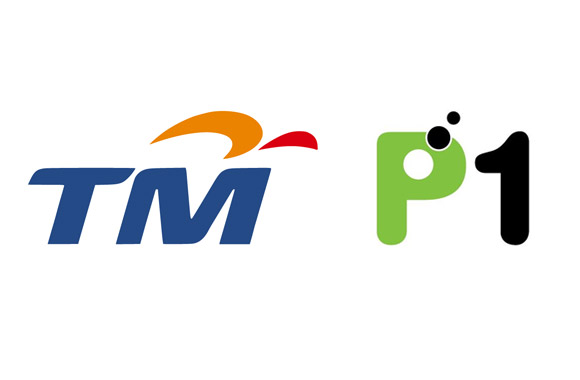Telekom Malaysia Bhd. (TM), Packet One Networks Sdn. Bhd. (P1), Green Packet Bhd. and South Korean mobile operator SK Telecom have agreed to extend the longstop date for TM’s investment in P1 by two months until September 30th, 2014, according to Digital News Asia (DNA). The extension is to give TM more time to obtain necessary approvals from local telecommunications industry regulator the Malaysian Communications and Multimedia Commission (MCMC).
On March 27th, 2014, TM, Malaysia’s largest fixed-line telco, announced that it had agreed to buy a majority stake in P1 for RM350 million and would invest a further RM210 million into P1’s parent company, Green Packet, through the purchase of 8-year redeemable exchangeable secured bonds that could be swapped for P1 shares held by Green Packet at a later date.
The deal will see 57% of P1 owned by TM, 30% by Green Packet and 13% by SK Telecom; and was seen as a key part of TM’s 4G strategy to expand into the mobile broadband space and to establish itself as a provider of converged communication services across fixed voice, high-speed broadband, mobile, and media.
At present, TM has two 5MHz blocks of spectrum in the 850MHz band—allocated for use with CDMA (Code Division Multiple Access) technology—and another 8.5MHz block in the 450MHz band, and P1 has a 30MHz block in the 2.3GHz band and a 20MHz block in the 2.6GHz band. The investment in P1 could give TM the spectrum springboard it needs to establish itself as the nation’s dominant carrier of mobile traffic.
Analysts who spoke with DNA when TM’s investment was first announced had taken a neutral position on the deal. They cited that P1’s continued losses, the cost of integrating TM’s and P1’s infrastructures, and the cost to TM of rolling-out and marketing its 4G LTE services would put substantial financial pressure on TM in the near term.
Looking further down the road, Tom Mowat, principal analyst at Analysys Mason said, “For TM, which is already the fixed broadband leader in Malaysia, it is an opportunity to become a converged provider. The combined portfolio of both entities stands a chance of addressing much of Malaysia’s mobile data traffic at a comparatively low cost base.”
Tony Brown of Informa Telecoms & Media, a London-based research firm, believes that with the Malaysian mobile market fully penetrated, the challenge facing TM will be to persuade users to leave their existing operators and switch over to TM’s new LTE services. He speculates that TM could achieve this by bundling its mobile services as part of a heavily discounted quad-play bundle alongside its fibre-broadband, fixed-voice and IPTV services. Additionally, TM may take advantage of P1’s relatively unpopulated networks to launch an unlimited use mobile broadband service that would differentiate its offering from that of the other big four mobile operators—Celcom, DiGi, Maxis and U-Mobile—which typically cap mobile data usage between 1GB and 5GB.
However, before any of this can take place, TM first needs MCMC’s approval in three areas: the change in P1’s shareholding, the planned lease by TM of spectrum owned by P1, and TM’s business plan with the spectrum it will lease from P1. TM submitted the necessary documents to MCMC two months ago but has yet to receive the regulator’s approval.







